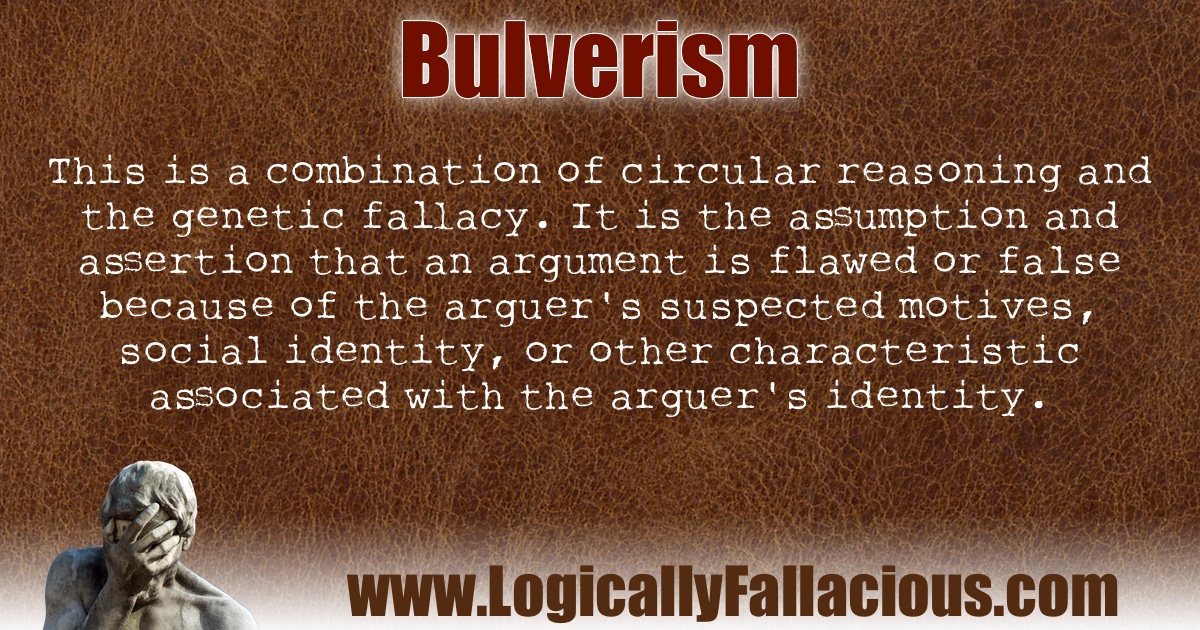Description: This is a combination of circular reasoning and the genetic fallacy. It is the assumption and assertion that an argument is flawed or false because of the arguer's suspected motives, social identity, or other characteristic associated with the arguer's identity.
Logical Form:
Person 1 makes argument X.
Person 2 assumes person 1 must be wrong because of their suspected motives, social identity, or other characteristic associated with their identity.
Therefore, argument X is flawed or not true.
Example #1:
Martin: All white people are not racists.
Charlie: Yes they are. You just believe that because you are white.
Explanation: Charlie is making two errors: 1) he is assuming that Martin must be wrong and 2) he is basing that assumption on an accidental feature of Martin—the amount of pigmentation in his skin.
Example #2:
Mom: Remember, dear. Nobody's going to buy the cow if they get the milk for free.
Daughter: You are only saying that because you are my mother.
Daughter: Wait... did you just call me a cow?
Explanation: Mom is doing her best to advise her daughter that she should be a bit more sexually reserved with her male suitors, cautioning her that she is unlikely to get any commitments unless she holds back sex. Although the claim is indeed dubious, the daughter assumes that it is wrong because of the source (her mother) and her mother's suspected motives (to get her married). So the mother must be wrong (assumption) because of her motives, and it is because of her motives that she is wrong (circular reasoning and the genetic fallacy).
Exception: There is no exception; however, in some cases it is fair to cast doubt on the argument based on the identity of the person making the argument. This is a heuristic that may be useful, but problematic in critical argumentation.
Tip: If you want a glass of milk, just buy the glass of milk, you don't need the whole cow (wait, did I just support prostitution?)

References:
Root, J., & Martindale, W. (2012). The Quotable Lewis. Tyndale House Publishers, Inc.
Questions about this fallacy? Ask our community!